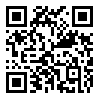Volume 3, Issue 1 (Winter 2023)
J Clin Sport Neuropsychol 2023, 3(1): 0-0 |
Back to browse issues page
Download citation:
BibTeX | RIS | EndNote | Medlars | ProCite | Reference Manager | RefWorks
Send citation to:



BibTeX | RIS | EndNote | Medlars | ProCite | Reference Manager | RefWorks
Send citation to:
Rezajoo S, Peymani J, Aghajany Hashjin T. The Comparison of Effectiveness of Relaxation and Neurofeedback on students' anxiety. J Clin Sport Neuropsychol 2023; 3 (1) : 4
URL: http://jcsnp.ir/article-1-69-en.html
URL: http://jcsnp.ir/article-1-69-en.html
1- Psychology Department, Shahre Qods Branch, Islamic Azad University, Shahre Qods Branch, Iran., Shahre Qods Branch, Islamic Azad University, Shahre Qods, Iran.
2- Psychology Department, Karaj Branch, Islamic Azad University, Karaj, Iran.
3- Psychology Department, Shahre Qods Branch, Islamic Azad University, Shahre Qods Branch, Iran., Psychology Department, Shahre Qods Branch, Islamic Azad University, Shahre Qods Branch, Iran.
2- Psychology Department, Karaj Branch, Islamic Azad University, Karaj, Iran.
3- Psychology Department, Shahre Qods Branch, Islamic Azad University, Shahre Qods Branch, Iran., Psychology Department, Shahre Qods Branch, Islamic Azad University, Shahre Qods Branch, Iran.
Abstract: (1287 Views)
Background and Aim: Anxiety disorders among students are among the issues that can significantly impact their quality of life and academic performance. Various methods have been examined to reduce anxiety in students aiming to improve this situation. The objective of the present study was to compare the effectiveness of relaxation therapy and neurofeedback on student anxiety.
Method: The research design was quasi-experimental, with pretest-posttest design. The statistical population included students attending healthcare centers in Tehran in the second half of 2019. Thirty participants were selected through multi-stage cluster sampling method and randomly assigned to experimental and control groups. They responded to the Beck Anxiety Questionnaire. Relaxation therapy sessions were conducted for the first experimental group in eight 45-minute sessions, while neurofeedback training for the second experimental group was conducted in fifteen 30-minute sessions. At the end of therapeutic interventions, participants in both experimental and control groups were re-evaluated using the Beck Anxiety Questionnaire. Research data were analyzed using descriptive statistics and covariance analysis.
Findings: The results indicated that both relaxation therapy and neurofeedback led to a reduction in anxiety among students. Comparison of the effectiveness of the two therapeutic methods showed no significant difference in reducing anxiety between them.
Conclusion: Therefore, based on the results of this study, it can be concluded that both relaxation therapy and neurofeedback can be considered as suitable options for intervention and reducing anxiety in students, without one being definitively better than the other.
Method: The research design was quasi-experimental, with pretest-posttest design. The statistical population included students attending healthcare centers in Tehran in the second half of 2019. Thirty participants were selected through multi-stage cluster sampling method and randomly assigned to experimental and control groups. They responded to the Beck Anxiety Questionnaire. Relaxation therapy sessions were conducted for the first experimental group in eight 45-minute sessions, while neurofeedback training for the second experimental group was conducted in fifteen 30-minute sessions. At the end of therapeutic interventions, participants in both experimental and control groups were re-evaluated using the Beck Anxiety Questionnaire. Research data were analyzed using descriptive statistics and covariance analysis.
Findings: The results indicated that both relaxation therapy and neurofeedback led to a reduction in anxiety among students. Comparison of the effectiveness of the two therapeutic methods showed no significant difference in reducing anxiety between them.
Conclusion: Therefore, based on the results of this study, it can be concluded that both relaxation therapy and neurofeedback can be considered as suitable options for intervention and reducing anxiety in students, without one being definitively better than the other.
Article number: 4
Type of Study: Applicable |
Subject:
Clinical Psychology
Received: 2022/05/5 | Accepted: 2022/05/20 | Published: 2022/08/6
Received: 2022/05/5 | Accepted: 2022/05/20 | Published: 2022/08/6
| Rights and permissions | |
 |
This work is licensed under a Creative Commons Attribution-NonCommercial 4.0 International License. |





